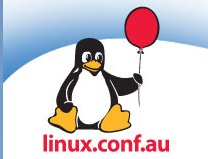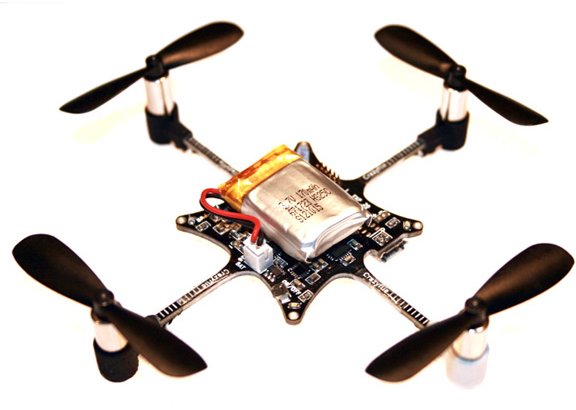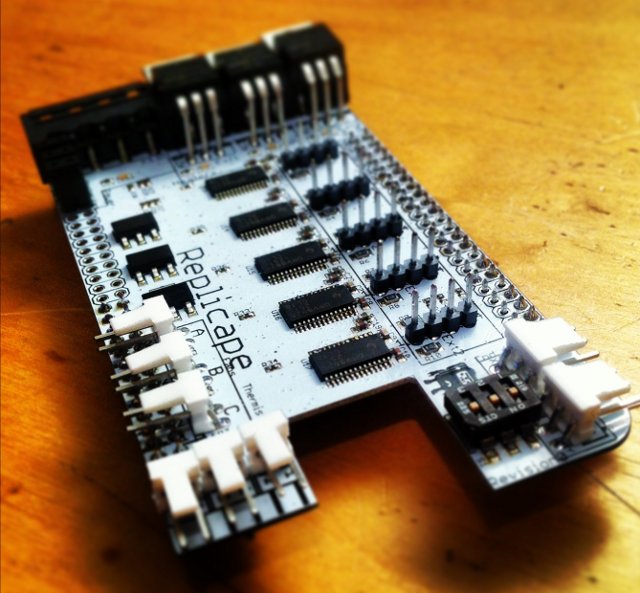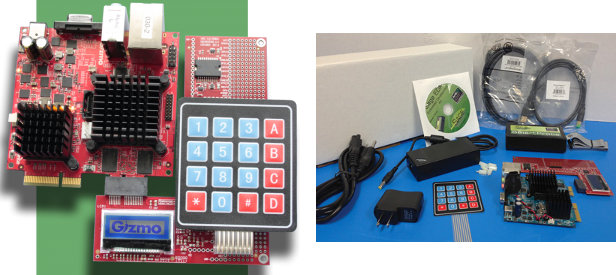Last week, I explained how to build U-boot, the kernel, and Android for Freescale i.MX6 HDMI dongle reference platform. Since them, there has been a bit more activity, with Richtechie releasing source code to some ARMTvTech members. However, this source code is very similar to the one released by Freescale, and misses some part present in the kernel config on GK802 such as CONFIG_MACH_MX6Q_RICHTECHIE, and the company clearly does not comply with the GPL. Let’s forget that for now, as Jasbir (who is also behind the Hackberry board) has managed to build and boot the kernel on his mini PC. There’s still more work to do, but at least we have a based to work on. In the meantime, I’ve noticed rz2k, an other developer, was also giving it a try on #arm-netbook Freenode IRC channel, so we decided to setup a few things to facilitate development and communication between developers. […]
Linux Conference Australia and FOSDEM 2013 Videos are Now Online
FOSDEM 2013 took place last week, and the organizers are in the process of uploading videos. Up to now, 5 main tracks sessions have been uploaded (Firefox OS; Free, open, secure and convenient communications; FreedomBox 1.0; Samba 4; and systemd, Two Years Later) as well as over 20 lightning talks. You can find the videos at http://video.fosdem.org/2013. You may also want to check my previous post for a lists of interesting talks, and I’ll probably feature some FOSDEM 2013 videos in this blog, at least the open source GPU driver talk. Linux Conference Australia took place on January 28 – February 1, 2013, and the 5-day conference featured lots of talks including several dealing with graphics in Linux, and one developer apparently trashing X in terms of complexity and performance, and explaining how Wayland was better. Others Linux sessions dealt with subject such as 3D printing, supercomputing, Arduino, big.LITTLE processing, […]
Quake 3 Arena Demo Using Lima Driver is (Slightly) Faster than Mali-400 Binary Driver
As mentioned previously, Luc Verhaegen was to give a talk about the status of Lima driver (reverse-engineered Mali-200/400 GPU driver), as well as other GPU open source implementation, at FOSDEM 2013. This is now done, and part of the talk included a demo of Quake 3 Arena (q3a timedemo) running on tablet featuring AllWinner A10 SoC (Cortex A8 @ 1Ghz, Mali-400MP1 GPU @ 320 Mhz, and DDR3 memory @ 360MHz), and a 1024×600 LCD. The fact it works is already a great achievement in itself, but this demo runs at 47.2fps with Lima driver (limare), whereas it can be rendered at 46.2fps using the binary driver. In his blog, Luc also explains that apart from being 2% faster, it also uses 3% less cpu than the binary driver! Take that binary blobs! There’s still more work to do however, as this Quake 3 Arena port is not playable yet for 2 […]
Crazyflie Nano Quadcopter Open Source Development Kit
If you can’t wait until 2014 to get the MeCam, Seeedstudio has something for you: The Crazyflie Nano Quadcopter, which looks similar to the MeCam, but does not feature a camera, its control board is powered by STM32F103CB MCU @ 72 MHz with 128kb flash and 20kb RAM (so, no it won’t run Linux), and at $173 the price is significantly higher. Here are Crazyflie key features: Small and lightweight, around 19g and about 90mm motor to motor Flight time up to 7 minutes with standard 170mAh Li-Po battery Standard micro-USB connector for charging which takes ~20min for the stock 170mAh Li-Po battery On-board low-energy radio@1mW based on the nRF24L01+ chip. Up to 80m range (environment dependent) when using the Crazyradio 2.4 GHz USB dongle Radio bootloader which enabled wireless update of the firmware 32 bit Cortex M3 MCU: STM32F103CB @ 72 MHz (128kb flash, 20kb RAM) 3-axis high-performance MEMs […]
Replicate CAPE Adds 3D Printring Capability to the Beaglebone
Beagleboard.org launched the Beaglebone Cape Design Contest back in November, several designs were submitted, and yesterday, they announced the 3 winning CAPEs who will be manufactured and sold by Circuitco Electronics: Replicape by Elias Bakken – 3D printer cape Interacto by Chris Clark – Cape with a triple axis accelerometer,a gyroscope, a magnetometer and a 640×480 30fps camera. Geiger cape by Matt Ranostay – Geiger counter cape Since today I’ve started to write about 3D printing, let’s carry on and have a closer look at the Replicape. The Replicape 3D printer cape includes: 5 stepper motors (X, Y, Z, Ext1, Ext2) 3 high power MOSFETs (PWM controlled) for 2 extruders and 1 HPB 3 medium power MOSFETs (PWM controlled) for up to 3 fans 3 analog input ports for thermistors 3 inputs for end stops (X, Y, Z) Programmable current limits on steppers motor drivers (SMD). No need to manually adjust […]
A Selection of FOSDEM 2013 Events
FOSDEM is a 2-day (or 3 if you include Friday beer event) event where over 5,000 members of open source communities meet, share ideas and collaborate. It’s free to attend, and there’s no registration, so you just show up to attend. FOSDEM 2013 takes place on Feb 2-3 (yep, this week-end) in Brussels There are 7 main tracks where sessions are organized: Operating systems Open source challenges Security Janson Beyond operating systems Web development Miscellaneous Robotics There are also keynotes and devroom for a total of 488 sessions. Developers rooms that may particularly be of interest to readers of this blog are: Cross Desktop devroom – e.g. Wayland, gstreamer, razor-qt, Qt Project, Plasma Active, etc… Cross Distro devroom – e.g. Linux on Android, suse on ARM, ARMv8, systemd, etc… Embedded and mobile devroom – e.g. Baserock Embedded Linux, Guacamayo (Yocto), Nemo Mobile/ Mer project, arduino… All in all that’s a […]
Marvell SMILE Plug DevKit is Now Available for $199
The SMILE Plug is a development kit, designed jointly by Marvell and Standford University, that brings Wi-Fi connectivity to a classroom, and allows up to 60 pupils / students to interact with their teacher via their phones’ or tablets’ web browser. Other possible applications include cloud computing, wireless AP, industrial control, medical instrumentation, office automation, as well as mesh and grid computing. The SMILE Plug is now available with the following updated specifications: SoC – Marvell ARMv7 compliant Marvell ARMADA 370 CPU System Memory – 512 MB DDR3 Storage – 1 GB NAND Flash + microSD slot Connectivity WiFi 802.11 a/b/g/n via Marvell Avastar 88W8764 4×4 WiFi for up to 60 nodes 2x Gigabit Ethernet USB – 2x USB 3.0 External backup battery for hours of reserve power* (optional accessory) Power on button and restart Power Supply – 12V/2amp external power supply JTAG and UART port for programming and debugging […]
$199 Gizmo Explorer Kit Powered by AMD G-Series APU is Now Officially Available
Back in November, I came across the Gizmo Explorer Kit, an embedded development platform based on AMD G-Series G-T40E dual core APU that includes the development board itself (Gizmo Board), two expansion I/O boards, Sage SmartProbe JTAG development tool, some accessories such as cables and power supply, and a DVD with the documentation and SDK. Today, Sage Electronic, Texas Multicore Technologies, and Viosoft officially launched GizmoSphere community that aims at “fostering innovation and development for x86-based embedded Accelerated Processing Units (APUs), and driving and enabling technology projects of interest to independent developers with a focus on stimulating and encouraging innovation for existing and new applications that leverage APUs”. To help with this initiative, they also produce the Gizmo Board, and corresponding Gizmo Explorer Kit, a development board that boots with coreboot, and can run a variety of operating systems such as Android, Linux, Windows, and other RTOS. You can refer to […]









